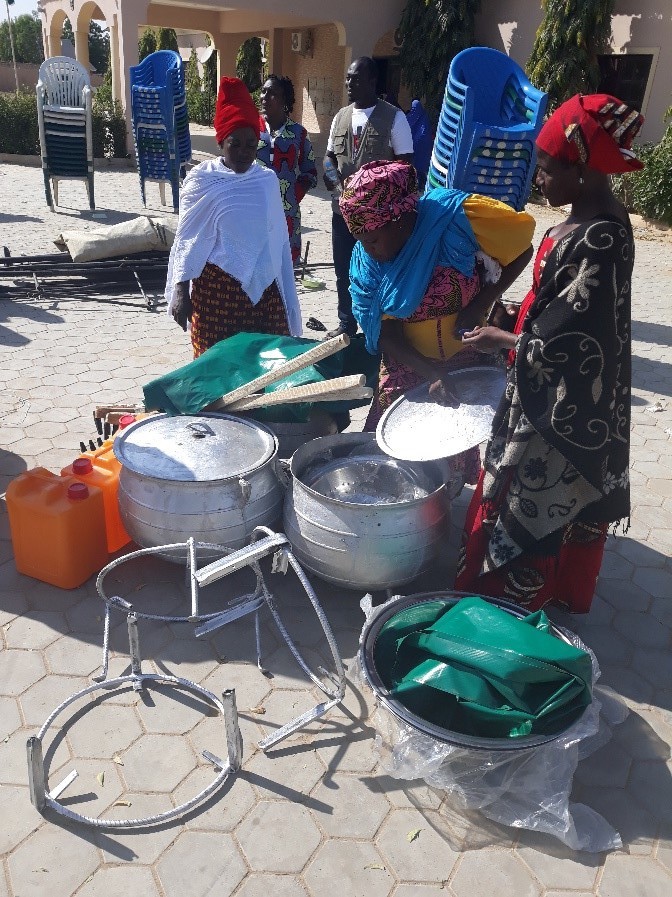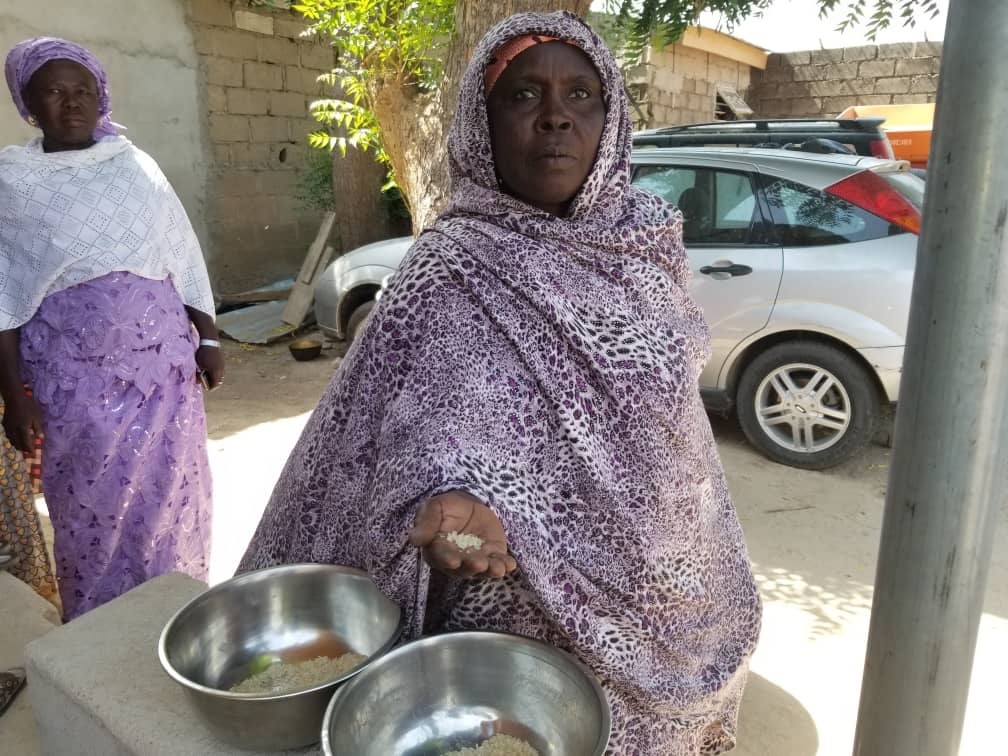Improving livelihoods of women in North East Nigeria
Date:

The excitement in the room could be felt miles away, as 300 women gathered in Maiduguri to receive Improved Parboiling Technology (IPT) kits to enhance the quality and quantity of rice that is been locally produced by women.
Bintu Bani, 40, an internally displaced woman who now lives in Old Maiduguri with her 10 children, left her home Dikwa four years ago due to the Non-State Armed Group (NSAG) insurgency. She is among those who have benefitted from a three-day training on Improved Parboiling Technology (IPT) supported by UN Women in partnership with Search for Common Ground and funded by the Government of Japan.
According to UN OCHA, In 2019, 7.1 million people (2.3 million girls, 1.9 million boys, 1.6 million women and 1.3 million men) are in need of humanitarian assistance in north-east Nigeria as a result of a crisis that is now in its tenth year. Disruption of livelihood, food security and weakened basic services and protection mechanisms are among the main challenges confronting the affected populations. Many women are now single heads of households and sole decision-makers due to kidnapping, death or separation from their spouses.
Pre-existing gender inequalities resulting from unequal access to opportunities have contributed to the limited access to resources and skills among women and girls, which have in turn increased their vulnerability and exposure to abuse, including sexual exploitation. Those in inaccessible areas lack access to food, supplies and services, are at high risk of experiencing abuse, and are not able to engage in their normal livelihood activitiess such as farming and trade due to limited movement associated with insecurity.- UN OCHA
“ We walked three days before getting to El-Miskin camp, in old Maiduguri, where we received some assistance brought to the camp. In 2018, I was selected to be trained on a new method of parboiling rice and now I am very good at it”
IPT is an improved system of parboiling paddy which lays emphasis on the use of steam rather than soaking the paddy in water. This is achieved using a device known as false bottom to prevent the contact between the paddy and the water.

Rice processing at the small-scale level is dominated by women, who usually buy paddy, parboil and mill for the sustenance of their households. The primary concern of these women is first and foremost food security for their immediate household.
“The lack of livelihood opportunities is a contributing factor to sexual and gender-based violence at the IDP camps,” says Lilian Ngusuur Unaegbu, UN Women Programme Coordinator on Gender and Humanitarian Action. She says providing women with the opportunity to earn a living is an important step that will help them fend for themselves in the camp and when they go back home.
A Training of Trainers (ToT) was carried out to build the capacity of conflict affected women in the Internally Displaced Person’s (IDP) camps and host communities in Borno and Yobe States, to enhance the quality of the locally milled rice through the false button method, thereby improving the market value of the milled rice. After the training, the women were divided into groups that have been registered into cooperatives to facilitate team work and ownership in producing and selling their high-quality parboiled rice in the local market.
“ I have even trained women in my cooperative; about 20 of them. We will use the starter kits to continue to do the processing business. UN Women and Search for Common Ground have helped us a lot, they have trained us and given us a new skill and now we can stand on our own, we will not be begging or asking anybody for money anymore” says Bintu Bani.
Tamwakat Golit, Search for Common Ground Project Manager says that the starter kits distributed will support women to start up businesses, to help them obtain a means of livelihood for themselves because a skill is not enough but with the starter kits they can start rice processing businesses.
Providing for her family is everything for Rebecca Ibrahim, a 35 year old mother of two, and an IDP who left Gwoza and now resides in Jere Local Government Area (LGA), El-Miskin camp. Like Bintu, Rebecca was also trained on IPT and her cooperative group received a starter kit thereafter. “We were trained on rice parboiling skills to help empower us so that we can sustain our families. We were selected and trained so that we too can train other women in our cooperative. This new method is very easy and even simpler than the old method we knew. After we were trained we have practiced, and our own and the processed rice is looking very fine and attractive like the Dangote rice (foreign rice)”.
The registered cooperatives will help to consistently supply buyers in the local market with quality rice. Being in a cooperative will also help the women to agree on prices that will work for them as well as facilitate members’ access to financial support from financial institutions.